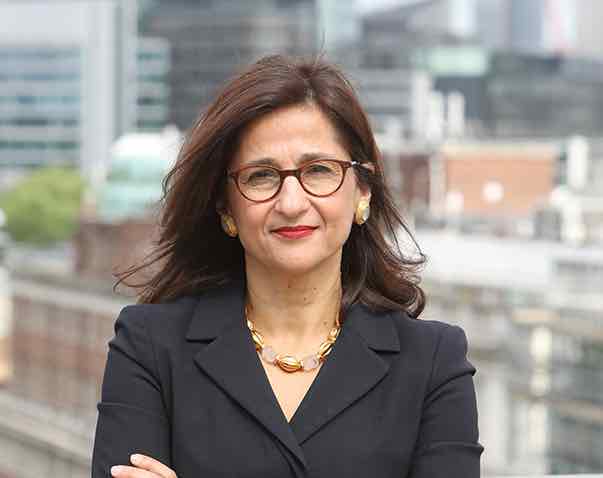
Baroness Minouche Shafik, director of the London School of Economics, on our broken social contract
I started thinking about the ideas in my new book, What We Owe Each Other, around 2016. I saw so much anger and division, not just in the UK but everywhere across the world. It partly manifested in populist politics, culture wars, the conflict between the generations around climate change and issues of race equity.
I was overwhelmed by these things and tried to understand their root causes. I visited charities and underprivileged schools around the UK to really see the world from different perspectives.
A new page
I was giving a lecture at the Lieberman Foundation in 2018 where I was beginning to draw together my ideas about what drives these problems: that there was something fundamentally wrong with our social contract, and that the post-financial-crisis world had to look differently at these global issues.
An audience member, who happened to be a publisher, approached me after the event and told me: ‘You need to write a book about this.’ In a weird way, years later, the pandemic helped me write the book – there was so little to do on the weekends.
Shifting priorities
Covid-19 will change politics, and that is cause for hope. There’s some very interesting polling I’ve seen across about 24 countries, which asked people’s views before and after Covid. It has made people feel more afraid, more anxious, more let down by society. On the other hand it’s also made people appreciate things like solidarity, equality and relationships.
They desire more security in their lives and maybe care a bit less about material things. That change in attitudes opens the possibility of rethinking the social contract.
Education comes first
My family lost everything during the nationalisations in Egypt in the 1960s. We had to emigrate to the US. My father used to tell me as a child: ‘They can take everything away from you, except your education.’
I went to some pretty bad schools – schools with gangs, with bars on the windows. In my last school there were four of us who were eager to learn calculus, but we didn’t have a teacher – we had to borrow one from another school.
We under-invest terribly in very young children – the first 1,000 days of a child’s life have a fundamental impact on how they do throughout their life.
This old idea that you get all your education from about age six to your early twenties and then you’re done is very outmoded for a world in which careers are likely to last 50 years.
Our debt to society
The biggest contribution HNWs can give the world is their fair share of taxes. That is a fundamental part of the social contract.
I was discussing this with a group of HNWs recently and one of them said: ‘I’d rather give philanthropically than pay taxes to the government, who are going to waste the money.’ I would argue that wealthy people should use their influence to make sure the government spends the money well.
Most people have an illusion that the main purpose of the welfare state is to reallocate money from rich to poor, the so-called ‘Robin Hood’ function.
Actually, the most important thing the state does is reallocate resources over the course of our own lives. In the UK, most people pay into the state pretty much the same amount as they get out.
HNWs will pay more and take out less, but they have to realise that caring about other people’s grandchildren a bit – as well as your own grandchildren – is the path to a more cohesive society.
What We Owe Each Other: A New Social Contract, published by Bodley Head (£18.99), is out now
Image: Nigel Stead
As told to Rasika Sittamparam
Read more
Profile: Eton college head master Simon Henderson’s ‘woke’ revolution
Facebook EMEA VP Nicola Mendelsohn: HNW giving needs to ‘dream big’






